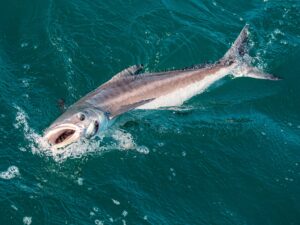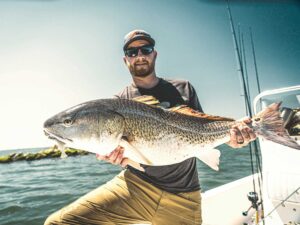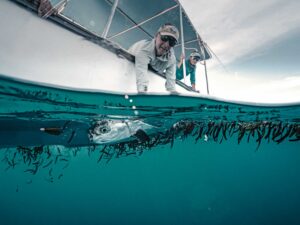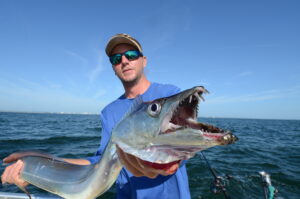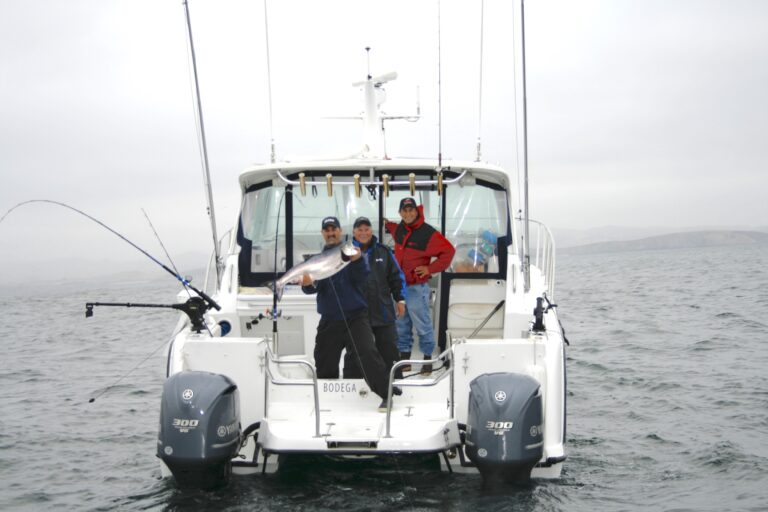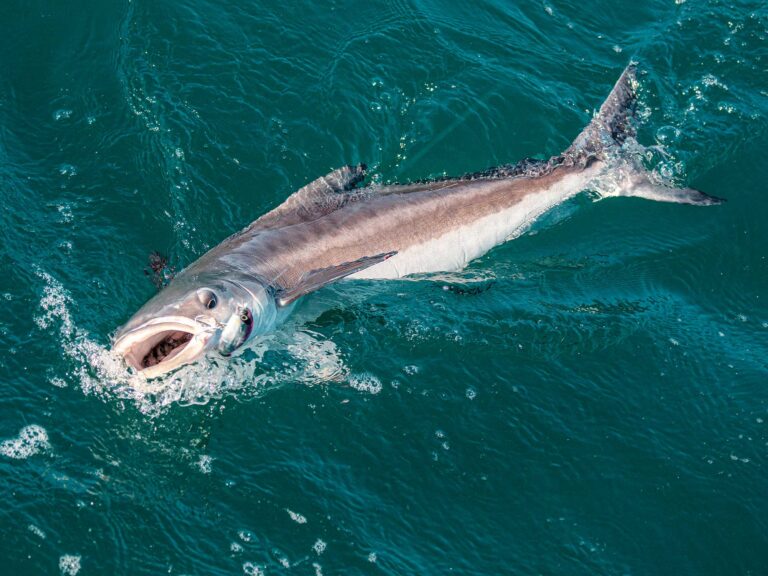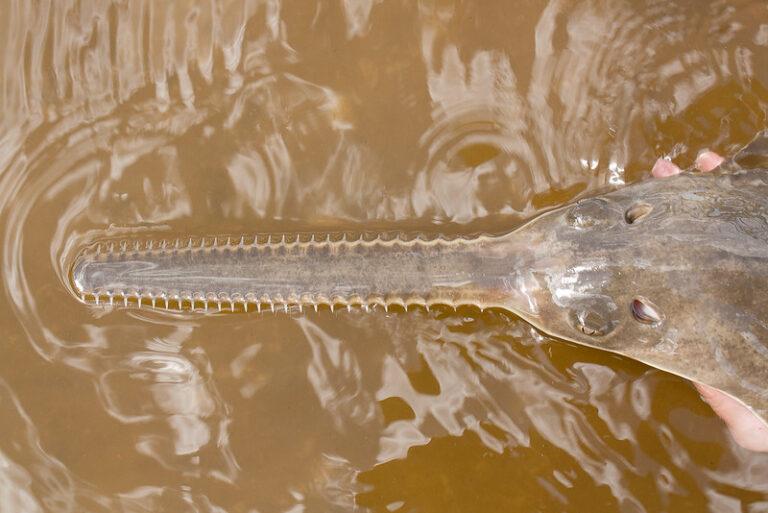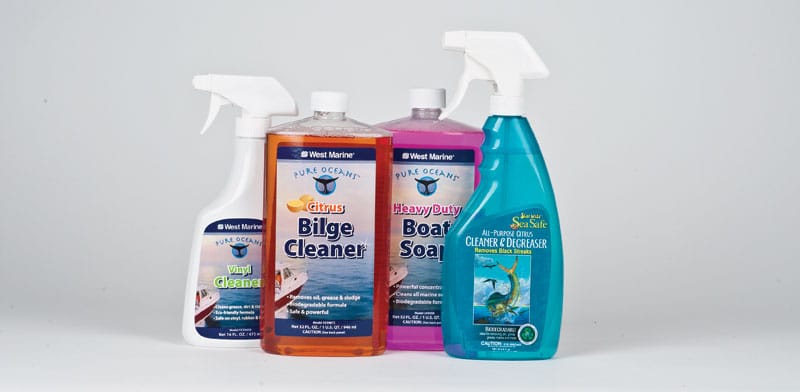
Eco-Friendly Cleaning
Grocery stores and fast-food joints are embracing the “green” wave. Even the automotive industry is getting into the act. So why not anglers? Sailors have harnessed wind power for centuries, and more recently, the sun’s rays to recharge batteries. Now with more green, or environmentally friendly, products available, plus greater awareness, powerboaters can do their part to lessen the impact on marine waters too.
Using eco-friendly cleaning products is one of the easiest ways to start the green transition. Several companies offer lines that are biodegradable and less harmful to the environment, as well as your boat.
“Our hull cleaner was green before it became popular,” explains Bill Lindsey, Star brite’s vice president of marketing. “Its main ingredient is a natural acid made from rhubarb plants. It’s not as caustic as bleach, chlorine or toilet-bowl cleaners, all of which dry out fiberglass and destroy other things, like the stitching in upholstery. We introduced the Sea Safe line of products because it’s the right thing to do. But they have to work. They have to work in fresh or salt water, with little suds, to be effective.” Star brite consulted the Environmental Protection Agency’s list of approved chemicals for compliance before developing the Sea Safe line. The bottles are made from a special resin that degrades after two years, with Carey Chen artwork on the labels.
Products with the DfE, or Design for the Environment, label are formulated with the safest possible ingredients for the environment and public health. The EPA scientifically screens ingredients and has so far permitted the DfE logo on more than 2,000 products.
Green maintenance and service products are also now readily available to the boating public. Australian-made Inox-brand lubricants contain no silicone, acid, kerosene or dieseline. They won’t destroy plastics or fiberglass either. Some formulas contain lanolin for rubber seals. Most importantly, Inox lubricants are water-resistant and noncorrosive, which are great qualities for the harsh conditions often encountered in the saltwater environment.
JL Marine Systems of Tampa, Florida, makers of the Power-Pole shallow-water anchors, has been using biodegradable hydraulic fluid since August 2008.
“Green Marine fluid is one of those easy and inexpensive things that anglers can use to make a difference,” says Robert Shamblin, vice president of JL Marine Systems. “We’ve had zero issues with it as far as performance and zero issues with the environment. It’s made from American-grown oilseeds that are 100 percent biodegradable. If there is a leak or spill, it’ll break down within 28 days so the natural habitat isn’t harmed.” Besides Power-Pole pumps, Green Marine hydraulic fluid is compatible with trim tabs, jack plates and other hydraulic lifts and pumps.
But you don’t necessarily have to use greenbacks to boat green. There are plenty of suggestions to limit your impact from sources like the BoatUS Foundation and websites such as www.greenboatblog.com and www.greenboating.com. Simple steps like using the restroom at the marina before leaving on a trip, pumping out the boat head rather than dumping untreated sewage overboard and not topping the fuel tank off to reduce the chance of a spill add up to healthier water. Even rinsing off fish blood before it dries so harsh cleansers aren’t needed later can help make a difference.
When major boat repairs are necessary, schedule them when the boat is out of the water. Use dropcloths or tarps to capture paint, fiberglass or dust. Make sure chemicals and other supplies are sealed when not in use, and keep absorbent pads handy in case there is an accident. And use water-based products whenever possible.
Patronize marinas that participate in the Clean Marina Initiative. This voluntary program promoted by the National Oceanic and Atmospheric Administration, the EPA and individual states encourages marinas and recreational boaters to protect water quality by limiting pollution and runoff. Not only is this altruistic, it’s better for business. CMI marinas can charge a little more for slips and have fewer vacancies. Legal liabilities are reduced. Free publicity and workshops attract more customers, and waste disposal costs are less. It’s a win-win situation for the marinas and boaters.
With millions of registered rec-reational boats in the United States, we all need to do our part to embrace the green boating philosophy. Less impact means healthier water. Better water quality equals more fish. And that’s something all saltwater sportsmen should be able to rally behind.

